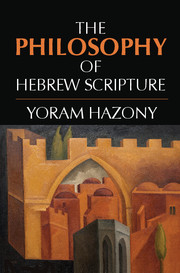Book contents
Introduction - Beyond Reason and Revelation
Published online by Cambridge University Press: 05 November 2012
Summary
What are we to make of the Bible? It’s not easy to say. But a common approach goes like this: There are two kinds of literary works that address themselves to ultimate issues – those that are the product of reason; and those that are known by way of revelation. Works by philosophers such as Plato or Hobbes are works of “reason,” composed to assist individuals and nations looking to discover the true and the good as best they are able in accordance with man’s natural abilities. The Bible, on the other hand, is “revelation,” a text that reports what God himself thinks about things. The biblical texts bypass man’s natural faculties, giving us knowledge of the true and the good by means of a series of miracles. So what the Bible offers is miraculous knowledge, to be accepted in gratitude and believed on faith. On this view, revelation is seen as the opposite of reason in that it requires the suspension of the normal operation of our mental faculties, calling on us to believe things that don’t make sense to us – because they are supposed to make sense to God.
The dichotomy between reason and revelation that is the basis for this understanding of the Bible has a great deal of history behind it. The fathers of the Christian Church adopted it as a way of sharpening the differences between the teachings of the New Testament and those of the various sects of philosophers with which they vied for converts in late antiquity. Many centuries later, the philosophers of the Enlightenment embraced this same distinction as an instrument with which to bludgeon the Church, using it to paint Christianity as a purveyor of superstition and irrationality. Fideists and heretics alike have thus had ample reason to insist on this distinction, and many continue to do so even today.
- Type
- Chapter
- Information
- The Philosophy of Hebrew Scripture , pp. 1 - 28Publisher: Cambridge University PressPrint publication year: 2012



